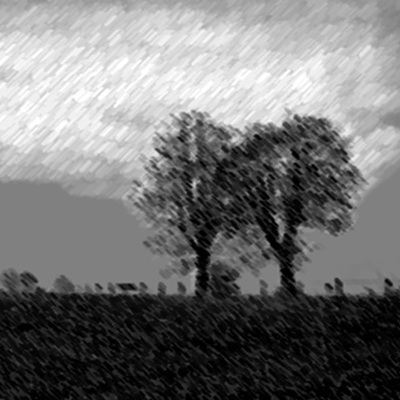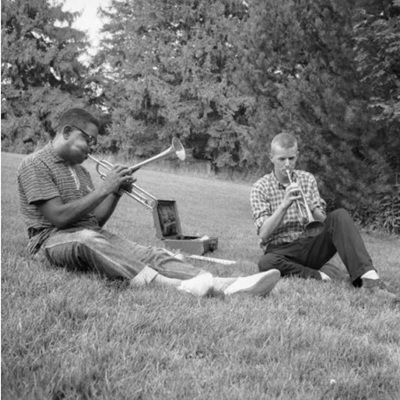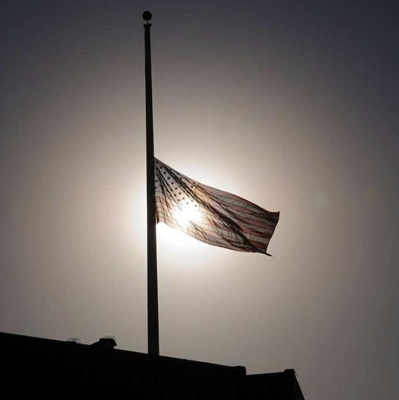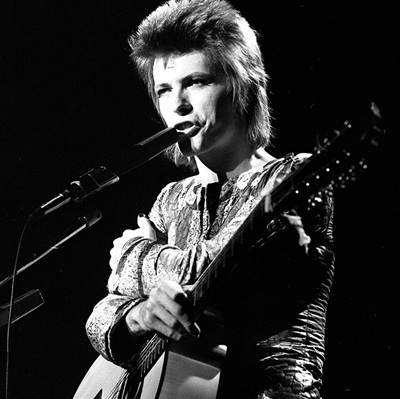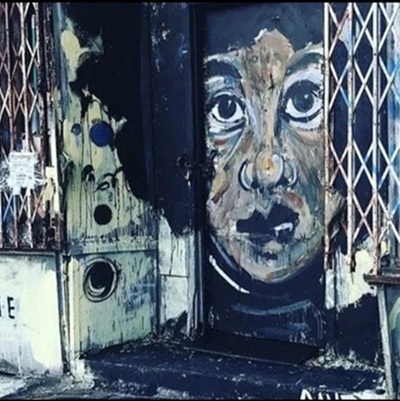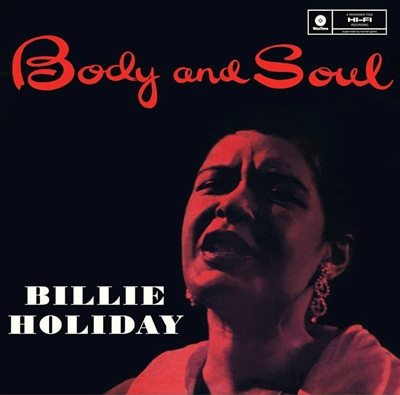.
.
photo by Min An via Pexels/Creative Commons
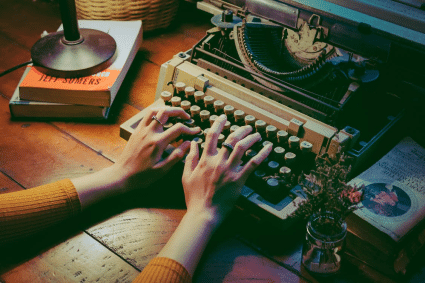
.
“Find out the reason that commands you to write; see whether it has spread its roots into the very depth of your heart; confess to yourself you would have to die if you were forbidden to write.”
― Rainer Maria Rilke
.
.
…..For over 20 years, Jerry Jazz Musician has been a website whose mission is to “explore the culture of America with jazz music as the centerpiece,” focusing on the music’s “rich history, and the culture it influenced – and was influenced by.” Over the years, however, Jerry Jazz Musician has organically become more than just a website about jazz; it is now a community made up of hundreds of contributing writers and artists who share common interests and goals.
…..Contributors to this publication appreciate jazz music – its sense of improvisational freedom tends to open hearts and minds to unlimited creativity, and its historic figures stimulate an appreciation for their musical brilliance and personal courage. Learning about the likes of Armstrong and Ellington and Lady Day and Monk and Miles helps us understand the complex time and place in which they lived, and admiration for them often shows up in the creative work published on Jerry Jazz Musician.
…..It has long been my desire to learn more about what the writers and artists who make up this sizeable community share in common – in addition to their appreciation for jazz – and especially to, as Rilke writes, “find out the reason that commands you to write.”
…..My curiosity led to a Zoom conversation I recently hosted with three contributing writers – Emily Jon Tobias, Antoinette Winstead and Douglas Cole. During this wide-ranging discussion, they talk about influential life experiences with writing, literary figures who inspired their work, overcoming creative and economic challenges, and where they fit in today’s publishing model. The result is a rich understanding of them as soulful individuals driven to write, and a healthy appreciation for their determined energy that undoubtedly resonates with this community of artists.
…..My hope is that this exchange further connects this website’s writers and readers, and that you enjoy…
.
Joe Maita
Editor/Publisher
.
.
___
.
.
The Writers
.
.
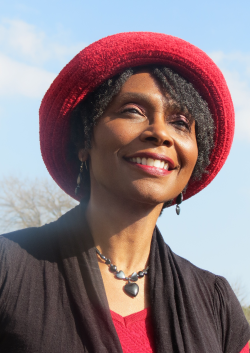
Antoinette F. Winstead, an author, poet, and playwright, is an award-winning poet and theatre director. Her short stories have been published in various anthologies and nearly two-dozen of her plays have been produced by various theaters including The Classic Theatre of San Antonio, The Carver, The San Pedro Playhouse/Cellar, Steven Stoli Playhouse, and Jump Start Theater. In addition, her poetry has appeared in several publications, including Jerry Jazz Musician, Voices de la Luna, Langdon Review, Texas PoetryAssignment, The Women’s Inc., and The Poet Magazine. She was nominated for a 2022 Pushcart Prize by Jerry Jazz Musician for her poem “Life Is . . .”
.
.
___
.
.
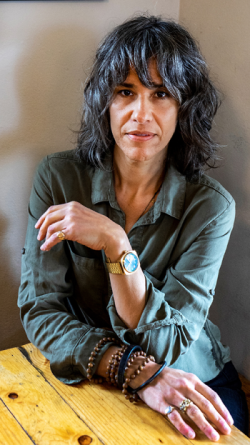
Emily Jon Tobias is an American author and poet. She is an award-winning writer whose work has been nominated for the Pushcart Prize, along with other honorable mentions, and has been featured in various literary journals such as Santa Clara Review, Talking River Review, Flying South Literary Journal, Furrow Literary Journal, The Opiate Magazine, The Ocotillo Review, Jerry Jazz Musician, Typehouse Literary Magazine, Tahoma Literary Review, Big Muddy, forthcoming in Spoon Knife, and elsewhere. Midwestern-raised, she now lives and writes on the coast of Southern California. She holds an MFA in Writing from Pacific University Oregon.
Click here to visit her website
.
.
___
.
.
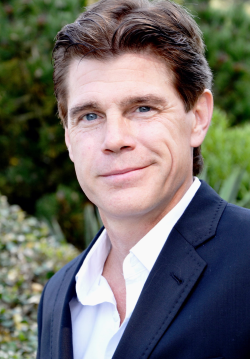
Douglas Cole published six poetry collections and the novel The White Field, winner of the American Fiction Award. He is a regular contributor to Mythaxis, providing essays and interviews with notable writers, artists and musicians such as Daniel Wallace (Big Fish), Darcy Steinke (Suicide Blond, Flash Count Diary) and Tim Reynolds (T3 and The Dave Matthews Band). He also writes a monthly piece called “Trading Fours” for Jerry Jazz Musician and was recently named the editor for “American Poetry” in Read Carpet, an international, multi-lingual journal from Columbia. In addition to the American Fiction Award, he was awarded the Leslie Hunt Memorial prize in poetry, and the Editors’ Choice Award for fiction by RiverSedge.
Click here to visit his website
.
.
___
.
.
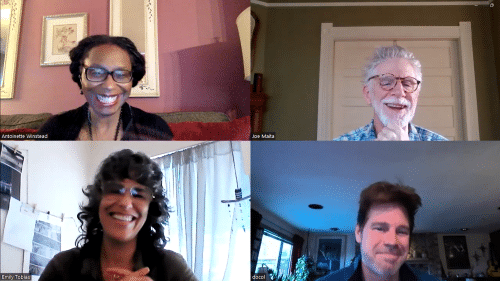
(clockwise from top left); Antoinette Winstead, Joe Maita, Douglas Cole, Emily Jon Tobias
.
.
(This conversation took place on December 17, 2022, and was edited for clarity)
.
.
___
.
.
Joe Antoinette, let’s start with you. Please tell us a little about your background?
Antoinette I live in San Antonio, Texas but I’m a military brat, so I’m from all over. I was born at the Air Force Academy in Colorado Springs and from the age of two, I moved all around with my family, stationed at different Air Force bases, including one in England for four years. I’m currently a professor at Our Lady of the Lake University, and I’ve been there for 28 years. I’m the Director of the Salazar-Escobedo School of Mass Communication and Theater, and I’m the former head of both of these programs, but now I am the program head for Theater only. I was also the Associate Dean of the College of Arts and Sciences for five years, but now I’m back in faculty and Director of the School.
Joe When did you first recognize your love of writing, and what inspired you to write in hopes of being published?
Antoinette I started writing when I was eight years old, and it was my mom who inspired me to write. She loves literature and poetry and would read stories and poetry to me and my brother all the time, and the way she read brought the words on the page to life, which sparked the love for reading and writing in me. She also bought me a subscription to the children’s magazine called Highlights, and they published a yearly “Creative Writing” edition that inspired me to write short stories, usually featuring me and my brother on an adventure. So, thanks to my mom, I loved writing from an early age, and while I would love to publish a novel or a collection of poetry, writing is the air that I breathe, whether or not I am published. My love of writing extends beyond prose and poetry. I write all genres, including plays. One of my plays is in production right now, The Children’s March, and another will be produced in the Fall, The Father Moye Project.
Joe Emily, what about you?
Emily I live in Southern California now, but I am also from all over the place. I was raised in Wisconsin, and like you, Antoinette, my love of writing was this very strange, inherent thing. I started writing as soon as I was able – probably around the time I was six or seven – and this was all because of my mother. She would find me in our backyard with the flowers, writing poetry in my little journal. She’d ask me how I would know these things I wrote about, and I would say, “I just know.” I’ve come to know my writing to be a sort of channeling process from somewhere else, and it’s been in my blood forever.
I have a “before and after” energy that fuels my work based on my choice to enter a life of recovery seven years ago. Since getting sober, I’ve had this fire in me to write, to make up for lost time. I’m a very driven person, so I pursued my graduate degree and got my MFA in 2020.
Joe Your turn, Doug…
Doug I live in Seattle now, where I was born, but I grew up mostly in Berkeley, California. I didn’t start off intuitively writing. My mother’s friend was getting her degree in Childhood Education, and she gave me a test that determined I was dyslexic. I don’t know if that diagnosis was real, but it stuck in my head. I didn’t like reading or writing. I would rather just watch television. But in junior high school, one of my teachers assigned us a book called Johnny Got His Gun, by Dalton Trumbo—strange story told by a soldier who’s been blown up and lost his arms and legs, hearing and sight – and I got sucked into it. Something clicked while reading it.
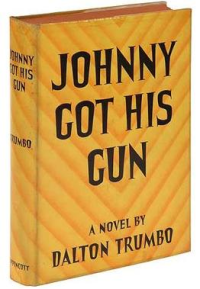
I didn’t naturally gravitate to writing, but in the 10th grade at Berkeley High School I wrote a piece inspired by a poster of the dancer Twyla Tharp on the classroom wall. I liked the sound – “Twyla Tharp.” My teacher – Mrs. Sheridan, who I adored – liked what I wrote and read it to the class, which was pleasantly shocking to me. That was the beginning of finding the beauty of language and this other world you go into – a world of escape – which is what I was most drawn to.
I didn’t pursue publishing. It was never a goal. In fact, I had concerns that if I made that a priority, I might lose some of the magic – my own “chapel.” But I wanted to attend grad school and realized that being published would help in the application process, so I sent some stuff out and had a couple of poems published. I did get into grad school and after that began teaching, and one of the things I learned is that publishing offers professional credits and pay increases. So I started publishing for money – not for the money I’d earn from the actual publication, but for the pay increases tied to the publication. I eventually published enough that I was able to gather the material and publish a couple of books.
Joe So it sounds like the three of you developed your interests in writing at a young age. Emily and Antoinette, you were both about eight when your interest began showing up, and Doug, you were a little older. What would you have been reading then, and was there a literary figure who may have inspired you at that time?
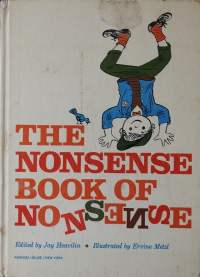
Antoinette It was a combination of writings. When I was seven, my mom bought me a children’s book of poetry, The Nonsense Book of Nonsense that contained work by several poets, and I read it from cover-to-cover, and when I was in second grade, living in Selma, Alabama, I took part in a reading competition and read 150 children’s books. Through these readings, I discovered different worlds, which sparked my interest in writing. Before this, my mom signed me up for a children’s book club when I was two, so I received a new book every month that she or my dad would read to me, and she’d read poetry to me also, from a collection of Great World Poetry. And wherever we were stationed, my mom also took me to the base library, at least twice a month to check out a stack of books. So there was no single literary figure that I can point to for inspiration, it was just that I was surrounded by books and had parents who made sure I read them and who also read to me.
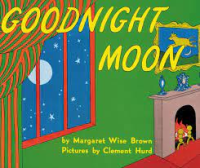
Emily A flood of memories came to me when you asked this question, especially the relationship I had with my mother as a child. I remember the book Goodnight Moon [by Margaret Wise Brown] and how the early addict in me insisted that my mother read that book to me every day. I think my interest in literature and its relationship to my mother soothed the lonely kid that I was at the time. As I got older, I was drawn toward reading authors and poets like Jack Kerouac and Sylvia Plath. Writers I was into then made me want to go out and hit the road, which I did at a very early age. I was very sensitive, so reading and writing has always been a way to escape into myself, to keep myself safe from the overwhelm of my feelings. Music does that for me as well.
Joe What about you, Doug? You mentioned Johnny Got His Gun earlier. Were there others?

Doug I was always a reluctant student in junior high and high school, so when reading was assigned it was just “homework” – forced labor – but I was lucky enough to pay attention, so if a good book came my way I might read it. I was acting out in Mrs. Sheridan’s class one day, and she sent me to the counselor’s office. When he asked why I was sent to him, I said I was “bored.” The next day, Mrs. Sheridan came to class with a box full of The Grapes of Wrath. She said, “Apparently, somebody in this class feels like we’re not doing enough.” But I took on the challenge and read it from cover-to-cover, and then wrote an essay on it.
Books started coming along after that, and like you, Emily, I read Sylvia Plath, and also Edith Wharton’s Ethan Fromme, and James Baldwin’s Sonny’s Blues. I also read comic books, and a friend of mine gave me Tarzan, by Edgar Rice Burroughs, and I liked it. My reading was haphazard. I loved going into the Moe’s bookstore in Berkeley. I would pick a book randomly off the shelf and read the first paragraph to see if it was a “magic” book.
Joe How have your own personal life experiences contributed to the kind of writer you have become? Let’s start with Emily this time…
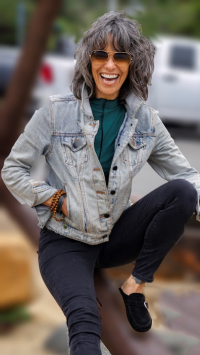
Emily Jon Tobias
Emily All of my life experiences have contributed to the kind of writer I am. I’ve had to work hard to distance myself a bit from the experiences so that I can craft the work that will best represent my characters. During my MFA, when I wrote my debut story collection, MONARCH, I was emotionally unequipped for the process of it, and what came through from that is this really beautiful, raw expression of characters that are built entirely from my set of emotional experiences, which involves a lot of really hard stuff. I’ve had a lot of traumas as most have, and this is not to say that my traumas are more or less severe than anyone else’s. But I do think that surviving and enduring broadened my imagination and strengthened a deep desire to understand the psychology of my characters. In this way, my life crafted the writer in me, and my job is to craft the stories.
In these early projects of my career, there are times that I don’t quite feel emotionally mature enough to care for my own needs while creating such wounded characters that have had to suffer in similar ways to me. The process is tricky because the writer in me and my characters can become enmeshed. Over the years, this process has become more manageable. I’m grateful that my debut came from a raw, unique space in me at a time in my career that can never be recreated. So while my past life experiences won’t change, the writer in me will. It’s an ever-evolving process.
JJM Antoinette, what about you?
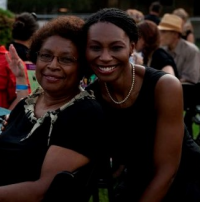
Antoinette Winstead with her mother, Jo Ann Winstead, 2010
Antoinette I actually write from an external rather than an internal place of inspiration. I get inspired by something or somebody, do the research, and I then write. An example of that is my play that was produced in the Fall, Tulsa 1921. I was inspired by the events of the Tulsa massacre and then created characters around them. The same happens for me with poetry – I am inspired externally. I always say that my life is bland, that I am a teacher and there is nothing going on of interest in my life, whereas the people around me that I meet are more exciting. This may be because I’m an actor and a screenwriter and playwright, where everything is external – you take things, other people’s experiences, and pull them into yourself to create something an audience can experience viscerally. So, I see or hear somebody’s story and will formulate a character and a story or poem around it. That is how I am inspired.
Joe What is the status of Tulsa 1921 ?
Antoinette I was the 2021 – 2022 Writer in Residence for the Carver Community Cultural Center in San Antonio. They hosted a couple of readings of the play, and I then developed it through the Carver, culminating in a production in the Fall, which I produced and directed. There are more things that I want to do with it, some revisions, and another production as the director, and then I’ll send it out into the world and see what happens. It’s a story that a lot of people don’t know about, and it needs to be told.
Joe Doug, what about you? How have personal life experiences contributed to the kind of writer you’ve become?
Doug Life experience inevitably gets into what we write. I read Plath and Kerouac and other writers of the 1950’s/60’s, writing as confession. Moving from Seattle to Berkeley shaped me. Berkeley is such a different culture, a different world. When we got there, it was still vibrating with the revolutionary energy and ideas of the 1960’s counterculture, and that exposure fed the way I saw the world, and how I’d write.
I still think back to how lucky I was that I went to a really good high school, where I was taught by passionate, intelligent teachers. I remember a psychology teacher gave us an assignment to choose a book from a list and write a paper applying one of the psychological principles we had learned. It sounds complicated for someone age 17. But I remember, at the time, my sister had read Joyce’s Portrait of the Artist as a Young Man, and she liked the first line of the book, “Once upon a time and a very good time it was there was a moocow coming down along the road…” So, I thought that sounds challenging, and since my sister read it, I thought I’d try it. I was in a groping intellectual stage…I tried applying Jungian psychology to the book.
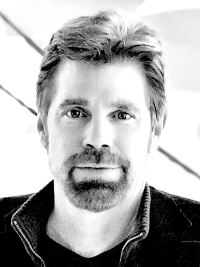
Douglas Cole
These are the kinds of things that shaped who I would be as a writer. I remember reading something that Joyce said, which I paraphrase, about how he was trying to convert the bread of common day into something…artful. I thought that was beautiful. I knew nothing about things like alchemy or any other esoteric ways of thinking about art, but it stuck in my head, and that notion became very important to the way I thought about writing.
I read the northwest poet, Richard Hugo, who got me to think about how you can include your own experiences in your writing. He had this idea of the “triggering town,” where you go to a place, and it tells you what to write through what you see and imagine. What you experience informs the poem. But you fill it with what you imagine. I like that idea of having both the internal biographical converging with external things that trigger your imagination.
Joe What are the biggest challenges you face as a writer, and how do you overcome those? Doug, let’s stay with you…
Doug Influence is a challenge. Some writers’ voices can be very loud. In high school we were encouraged to imitate a writer as a way to expand our own language. I read Mark Twain in high school and wrote my midterm biology exam using the language I had been hearing in Huckleberry Finn. My teacher appreciated it. But not long after that I realized that it was a challenge to absorb those voices and to let their spirit in, but to do so without being subsumed by their energies to the point that it too heavily imprints my own language. So, in a way, avoiding being imitative and derivative is a challenge. I often think of Miles Davis in that respect. During a dinner party at the White House he was asked by someone, “What do you do?” His answer was that he invented about five different kinds of music. This notion of reinventing yourself is a beautiful challenge I’ve set for myself. Continue to reinvent.
Emily My biggest challenge while creating is caring for myself emotionally. I find it hard to be patient and kind to myself when I think things are taking too long. And because I develop deep relationships with my characters, I sometimes experience their grief. There’s a strange love affair I have with these characters of mine—full of passion, heartbreak, and sorrow, and I miss them terribly when stories are finished. Honestly, I can become quite obsessive, and because I develop deep relationships with my characters, I sometimes experience their grief. I tend to make a big mess with the art before I craft, and weeding through can feel frustrating. For me, writing takes time and if I fight that, the whole process can be emotionally daunting. With my writing process, movement and meditation are key. Yoga, walks, breath work are all tools to get the energy moving when I feel looming self-induced pressures.
I’m a person in constant transformation, always turning over. My work is a manifestation of that. My challenge is allowing for that to happen without trying to control, manipulate, or bully myself into doing things a certain way. While I have been writing my entire life, I am also new to the process of craft in many ways. I am not quite sure how that’s going to look with the next project. While my process stays the same, the writer in me has changed, so it will be interesting to witness how things are different with my novel I’m writing now. One thing I am sure won’t change is how much I miss spending so much time with my characters once the project is finished.
Joe You must create characters you don’t like, right?
Emily My characters are beings I love but don’t always like. They’re always ripe for change. We don’t have stories without change. It’s easier, in a sense, to create a character that has a lot of work to do and whose stakes are quite high. My favorite characters to create are unsung heroes and underdogs who break barriers of expectation. My characters tend to surprise me, and those moments of shock when I’m creating them are the most fun for me. I love when I get to say, “Oh wow, we’re actually going there?! Alright, let’s do it!”
Joe Antoinette, what about you? What are the biggest challenges you face as a writer, and how do you overcome those?
Antoinette My biggest challenge is time. There never seems to be enough of it. I try to create space to write, and then I get really anxious if I can’t write – it feels like something’s missing in my life. Time is constantly racing to the point where it doesn’t seem like there’s enough time in this life to write all the stories I want to write. To find any time, I must have some kind of structure, balance. I have to have a life – family and friends — and I have to work until I can make a living as a writer, so a big challenge is finding the time to write, which is easier in the summer when there’s no classes. But during the school year it’s a constant struggle, but I manage somehow.
And I’m with you, Emily, as a writer it’s important to take care of yourself and your spirit and your soul. So I work out and mediate daily. Because writing is such a big part of who I am, when I’m not writing it feels as if I’m not breathing, and I can feel sad and down. Like with meditation, writing feeds my spirit, my soul. It makes me whole. As my time on earth grows shorter the question of having enough time to tell all my stories comes up. I was in contact with Dean Koontz for a bio I was writing on him for an encyclopedia on supernatural literature and I asked him how often he writes, and he told me that he publishes a new book every three months! How does he do this? How is there enough time for his wife and his dogs and doing other things besides write? He’s obviously found the work/life/write balance I’m seeking. I also share Doug’s challenge of making sure the voices of writers I’m reading aren’t infecting my own writing, and that I’m being authentic to my own voice. One method I use to avoid this is to not read anything in the same genre I’m writing at the time. It’s not foolproof, but it helps.
Emily I’m so glad that you talked about time, Antoinette, and this sense that we are running out. Honoring the process and the time it takes to write is as challenging as anything else. Sometimes the sense that I am running out of time can feel really crushing. I, too, get grief-struck, almost heartbroken, when I am not writing.
Joe This idea about having anxiety over not having enough time is interesting, and, although all three of you have jobs outside of your writing, I imagine there may be some economic anxiety as well. Does anxiety over the economic reality of your creativity ever get in the way of your work?
Doug It’s an interesting question. When I began writing I remember reading about how Kafka never made money from his writing, published very little, but he created this beautiful work. I came to understand that the real goal is to create something beautiful. So, early on, my motivation for writing was not about money or publishing, because then I would lose sight of what drew me to writing in the first place.
Writing has always felt like a protected space. Writing is a way to stay spiritually and psychologically energized. I think all of us would do this whether we made money from it or not, and if we do make money or get published, that’s gravy.
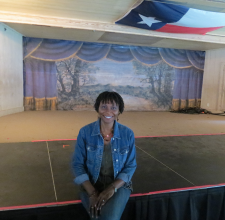
Antoinette Winstead on the Gruene Hall Stage; Gruene, Texas
Antoinette I agree, Doug. My mom used to tell me that I needed to have a job that paid enough money so that I can do my creative work. I’m blessed to have a job where I work full time for eight months out of the year and then I have a large swath of time the rest of the year where I can sit down, go into the rabbit hole, and just write. Right now, it’s been tough to get the time – even on weekends – because I’m directing two plays, Fences by August Wilson and my play, The Children’s March, which takes up a lot of my time and creative energy. But I will, and do, manage to write one way or another.
I know that there are people who write for the money, but as I tell my students, if you’re doing it with love and passion, the money and the recognition will come. People do strive for money and can be successful at it, but I don’t want my creative work to ever become hard labor. It’s challenging enough to write, but because I love it, I don’t mind the challenges, but I don’t want it to be the kind of work where I get up in the morning and have to write in order to make a living. That would destroy the passion and joy I have for writing. It’s a joy I find in any of the forms I write, whether it’s an article, a poem, or a short story, and if I get published and paid then that’s a bonus. But money is never my first consideration.
Emily You both inspire me so much, and I completely agree. We write because we have to – it’s in our blood. We may not always like to write, but we feel compelled, nonetheless. Financial pressures speak loudly, of course, but how my heart shouts to write is louder. With so much personal and collective uncertainty, one thing that remains clear is how I must continue to write.
Doug, I love how you brought up spirituality because to me this deals with how human beings interact with the process of creation. I feel fortunate that no matter what kind of emotional neuroses I’m going through, I know where my seed of creation is, and I am familiar with my method: to write. Somehow, I trust that if I continue to write, I’ll find ways to get by. Already along the way, I’ve had friends come along to help me. These encounters make me feel guided, nurtured, and nourished through the process. As artists, I think we can agree that we are not in this for anything other than pure love of the art and the richness we gain in spirit. I think writers, in particular, are at home with that. None of the mentors and authors I respect point to financial gain as encouragement to write. This is simply not on the list. In my view, there seems to be a collective understanding about that in our global writing community, and there’s something so pure and beautiful about that.
Joe And this attitude is heroic. You guys have much in common with jazz musicians, most of whom play even after understanding they will not likely ever be compensated in any meaningful way, but they are driven by their art, and the culture benefits from their energy.
So, we’re talking about economics and during that we’ve touched on the idea of being published. In some ways, there is more opportunity for writers to be published now than a generation ago because beyond the major publishing houses there are plenty of sites like Jerry Jazz Musician that publish literary work, and writers can also self-publish. How do you see your place within today’s publishing model? What are your goals for having your work seen?
Doug I have targets and publishing goals. One is to publish in journals like Jerry Jazz Musician, and another is to publish in the New Yorker or Paris Review or Granta, which are fun targets to keep shooting for. While trying to get published in them isn’t what keeps me going, they are fun goals. And I published in that light – to have fun. It’s fun to publish a poem. It’s fun to publish a short story.
At times I’ll go into my journals and pluck a piece that I’m willing to share, and I’ll get working on it, and the more I work on it, the more I start asking if I want to publish it. The journals become targets, and this becomes a way to quality-check, to get the piece into a version good enough to submit. And, if it’s published, it’s a feather in the cap.
I’ve developed a relationship with certain editors, some of whom are hands-on about changes, and others who just take the piece and publish it as is. I like the interaction of working with a publisher. I also like publishing and the process of turning something into an artifact that will endure – like a book form –another arena for thinking creatively.
So, that’s my approach. And it’s a great time to be writing and publishing because there are so many opportunities. While that old school made up of big publishing houses is shrinking, there’s a lot more publishing going on. There’s also the Internet Archive, which provides a warehouse of published writing. You send them whatever you’ve published, and it goes into the collective digital memory.
Antoinette Poetry for me is a labor of love, it comes from the heart, and is linked to my mom’s passion for it, which she passed onto me. And just as the poetry she introduced me to moved me, I want to touch and move people with mine. I also want people to explore and interpret it for themselves and discover a personal meaning. While the desire to write poetry primarily comes from a place of love, I also write it for the challenges it presents. If I discover a writing contest, I may enter it to challenge myself, to see if I can write on that subject, or in the prescribed format, and produce something that is publishable.
My short stories are usually inspired by something external, like “Friday Night Wagon Wheel” about a form of lynching that took place along the Texas/Louisiana border during the 20th century, and/or they speak to something for a specific publisher or competition. Over the last few years, I’ve really gotten into reading mysteries, which has inspired me to try this genre, so I’m writing a mystery novel right now. I’d love to have that published, but I’m unsure now how I’ll send that out to the world – either I’ll try to get a publisher interested or I’ll self-publish. Lately, I’ve been seeking publishers who have an interest in new mystery writers. I also write plays that I’d love to have published. I recently received a grant for a play that I’m working on about Father John Martin Moye, the founder of the Congregation of Divine Providence, and as part of the grant, it’s supposed to be published after it gets a couple of productions, which is the way the theatre world works – a play needs to be produced before it can be published.
But publishing right now is such an amazing place and space for people to work in. You can self-publish your book on Amazon, for example, but for me publishing is about quality, too, not just publishing to publish. Which leads me to question: What do I want to leave behind that I’ll be proud of? So I always look for old school, traditional publishers who help writers produce quality work, but it’s just so hard to get into that world these days, even if you have an agent. If self-publishing is what someone wants to do, I encourage writers to make sure that what they publish is high quality. I always tell my students that are self-publishing to make sure they have somebody looking over their work – a professional editor or even an English professor – and to make sure that their interest in publishing isn’t because of an expectation that they’re somehow going to make millions of dollars, which I feel is the wrong way to approach writing. For me, you are writing to share, and to get your voice out there – it’s not just about the money. Because of this, I do love the small publishing houses out there, they are the backbone for all of us who are looking for a way into the wider publishing world. They are focused on quality, not just the bottom line.
Joe That’s a wonderfully optimistic view of the publishing world, Antoinette, and that’s great. On a personal note, as a publisher of a small literary website, I see myself as a stepping-stone for emerging writers who, if they are published enough by boutique sites, will get the attention of an agent and perhaps move to the next level. So, I’m glad you see small publishers as being a relevant option for your work. What about you, Emily?
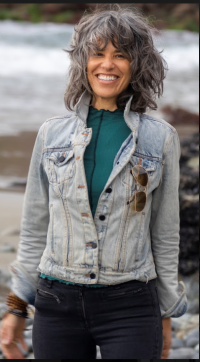
Emily Jon Tobias
Emily Since finishing my MFA in 2020, I’ve had an unintended crash-course in the publishing world which has opened my eyes to the business side of authorship. Small press publishers are critical to emerging writers. Joe, you and Jerry Jazz Musician are a great example of this. For me, Jerry Jazz Musician has become a space vital to my building strength and exercising my voice. When choosing a publisher for MONARCH, I had several offers from small presses, but it was very important to have it published where it belonged. I was constantly checking my motives for why I write to begin with. Often, I find myself leaning on my intuition when deciding which way to go in the publishing world.
I’ve certainly had to make peace with rejection over the past few years. I tend to throw a wide net when querying publishers and agents, so I experience a huge amount of rejection. It’s a powerful experience learning to navigate rejection, and I continue to build thick skin. Through it all, I’m being taught what kind of writer I am now, and what kind of writer am I going to be. I intend to stay true to my voice, which will likely not be an easy, popular route. No, I sense my journey will be tougher, and it will certainly continue to build character. I’m up for the challenge if it means being true to myself.
Joe Much of what we’ve talked about are your present and short-term goals and challenges. What are your long-term goals, say, 10 or 15 years down the road?
Antoinette I would love to have a mystery series published, and the big dream is to have a play produced on Broadway. That would be great! And I’d like to put together a poetry collection within the next five years. I’m hoping to be retired within that time frame, and I’d like to devote all my time to writing then. That’s the big dream, to write fulltime. But the first goal is to complete the mystery novel I am writing, Forget Me Not, and then work on the next, which I already have ideas for and have outlined.
Joe Doug, what about you?
Doug My ten year plan is to stay healthy and keep the balance I currently have, because I love it. The writing is the important focus, and publishing, too. My middle-ground, realistic goal would be to get a few grants so I can moonlight teaching less and shift some energy over to writing more – maybe even have a little bit of financial success. I wrote a screenplay of my published novel The White Field, but I don’t know what to do with it. I just wanted to see what it was like to write a screenplay, and how to format it. I’d love to see a movie made of that! It’s probably a pie-in-the-sky dream, but maybe not that unrealistic. It sure would be a fun thing to have happen.
Emily I also have a dream of making one of my short stories, “Nova,” into a short film, so I’m on board with your movie hopes. Currently, my three goals are to complete the novel I am writing, to write a memoir, and to write a collection of poetry. I’d like to publish all three of those projects in my lifetime. I also want to combine my writing with music, but what that looks like remains a mystery for now. I have a deep desire to integrate my art into every aspect of my life, so teaching is a big dream of mine, as is writing full time. I suppose even in art, for me, it really is “one day at a time.”
.
.
___
.
.
This conversation took place on December 17, 2022, and was hosted and produced by Jerry Jazz Musician editor/publisher Joe Maita
.
.
Click here to read Antoinette Winstead’s Pushcart Prize nominated poem “Life is…”
Click here to read Douglas Cole’s Jerry Jazz Musician poetry series, “Trading Fours”
Click here to read Emily Jon Tobias’s Pushcart Prize nominated short story, “Mouth Organ”
.
.
___
.
.
Click here to learn how to submit your work
Click here to subscribe to the (free) Jerry Jazz Musician quarterly newsletter
Click here to help support the ongoing publishing efforts of Jerry Jazz Musician (thank you!)
.
.
.






